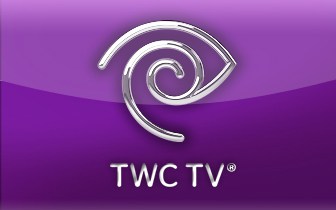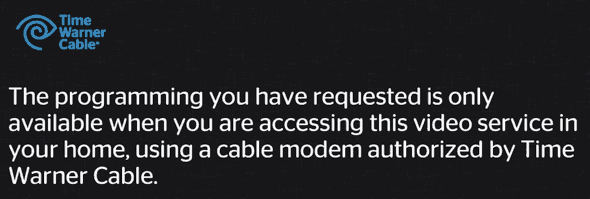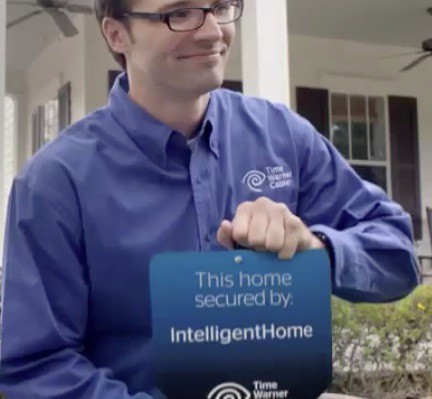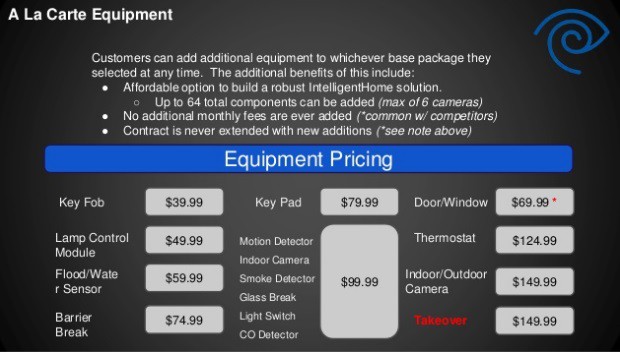 Charter Communications and Time Warner Cable believe they can win the war against cord-cutting by offering broadband-only customers a less expensive video package with a free Roku 3.
Charter Communications and Time Warner Cable believe they can win the war against cord-cutting by offering broadband-only customers a less expensive video package with a free Roku 3.
Charter Communications has been quietly testing a subscription service called Spectrum TV Stream that’s aimed at broadband-only customers, starting at $12.99* per month and includes a free Roku 3 streaming player. Customers can start with a package of around 15-20 local/over the air, home shopping, religion, and weather channels, along with the option of adding Showtime or HBO for an extra $12.99 a month. Several extra cable channels, including: ABC Family, ESPN, Food Network, Hallmark, HGTV, LMN, Nat GEO, AMC, Discovery, History, FX, History 2, TBS and TLC are also available as an option for an extra $7 a month.
Because it’s Charter, there are some gotchas, as indicated by our *asterisk. The most disappointing is Charter’s insistence on applying its usual $5-8/month Broadcast TV Surcharge fee (it varies by market) to the streaming service. Other taxes, fees and surcharges also apply, which means most will pay at least $20 a month for a service Charter is advertising for $12.99. The Charter-supplied Roku 3 ($99 value, which includes a remote and headphones) is required to use the service and comes pre-activated. Customers can also access the service through Charter’s phone/device app, but out of home viewing does not function for some networks for contractual reasons.
Because the service is so new, Charter’s sales representatives have offered inconsistent information about the service. One current Charter customer was charged a $29.99 service change fee to transition to Spectrum TV Stream while several others were told they could not drop existing cable TV service and sign up for streaming without first canceling and disconnecting all Charter services for at least 30 days. To be fair, some representatives offered to open a new account in the name of another household member to avoid the 30 day waiting period and another used the opportunity to offer the customer a retention discount to encourage him not to change his service.

Gotcha with that $30 change of service fee, which may turn out to be a billing mistake. Also notice the out-the-door price of Spectrum TV Stream is higher than advertised.
Based on these experiences, it seems likely Charter is using revenue protection measures to discourage current cable television customers from switching to a less-costly plan.

You need Charter’s Internet service to subscribe.
Charter’s flyer about the service has been sent to cord-cutters, cord-nevers, and broadband-only customers with satellite TV subscriptions. But since a copy landed in our hands, we’re sharing the details with everyone.
To ask if the service is available in your area or to subscribe, customers need to call a special toll-free number: 1-844-560-5730. You will need Charter broadband service to qualify for the streaming TV service. The Roku 3 device is shipped to arrive within one week, and requires a customer signature or waiver on file for FedEx delivery. Although Charter claims the offer of the free Roku 3 expires Nov. 15, 2015, it is likely to be extended. Customers signing up will be considered qualified cable TV subscribers, allowing authenticated access to on-demand content from cable programmer websites, including premium services like HBO Go (if you subscribe). Up to 15 devices can be registered for viewing, five in simultaneous use. There is a 30-day money back guarantee and customers can cancel and keep the Roku 3 with no further obligations to Charter.
Quality and performance was rated fair by beta testers already signed up. The service works over Charter’s broadband network, which may be another reason the company dropped usage caps several months ago. Regular viewing will run up your usage numbers, but not as much as high-definition streams from Netflix or Amazon.
Charter’s Spectrum TV Stream apparently uses MPEG-2 compression and video quality is reportedly not comparable to traditional satellite TV or cable. Some claim it performs about equal to Netflix’s lowest resolution stream setting. Others complain it can take 3-4 seconds to change channels and streaming quality can dynamically change based on Charter’s broadband performance. Cable customers will also likely miss functionality they get with a DVR to pause, rewind, and start-over television programs — features all absent from Charter’s streaming service.
But even those disappointed with the service are welcoming the consolation prize of an effectively free Roku 3, which Charter allows you to keep with cancellation just for trialing the service.
 Time Warner Cable is reportedly planning to launch its own streaming television package today for its broadband-only customers, starting with those in New York City. Usually reliable sources tell Engadget Time Warner Cable will launch a beta test of a new version of its TWC TV service. As with Charter, Time Warner Cable will supply a free Roku 3 tied to the customer’s Time Warner Cable broadband account.
Time Warner Cable is reportedly planning to launch its own streaming television package today for its broadband-only customers, starting with those in New York City. Usually reliable sources tell Engadget Time Warner Cable will launch a beta test of a new version of its TWC TV service. As with Charter, Time Warner Cable will supply a free Roku 3 tied to the customer’s Time Warner Cable broadband account.
Time Warner will offer its “Starter TV” package as a broadband add-on for $10 a month. That package offers viewers (in NYC): WABC, WCBS, C-SPAN, C-SPAN 2, C-SPAN 3, WWOR, WPXN, WLNY, WMBC, UniMas, WRNN, RISE, WYNJ, Educational Access, EVINE Live, WNYW, Galavision, Government Access, HSN, Music Choice, WNBC, WNET/WLIW, Public Access, QVC, SHOP NBC, TBN, TBS, Telemundo, TWC News, Univision, WGN America, WPIX, and several international/special interest channels.
Showtime and Starz will also be available in an optional package priced at $20 a month. If you want all of Time Warner’s channels and those premiums, they are bundled together for an extra $50 a month. We are not certain if the $50 bundle covered Time Warner’s “Standard” or “Preferred” TV lineup as of press time.
In essence, the package will look a lot like what current Time Warner Cable customers can access over the company’s TWC TV app. The difference is this is the first time Time Warner will sell IPTV service to consumers who now avoid cable television. These streaming-only customers will also never have to lease a cable set top box.
 As with Charter’s service, Time Warner Cable customers will have to give up DVR services like pause, fast-forwarding, rewind, and start-over. The service offers no recording capability either, and maintains the same contractual restrictions that limit the number of channels you can watch on devices outside of the home.
As with Charter’s service, Time Warner Cable customers will have to give up DVR services like pause, fast-forwarding, rewind, and start-over. The service offers no recording capability either, and maintains the same contractual restrictions that limit the number of channels you can watch on devices outside of the home.
Customers can stream video on up to four registered devices, including the Xbox One/Xbox 360, Android, iOS, Fan TV, Kindle Fire and Samsung’s Smart TVs.
It’s our contention these IPTV services are the likely future of cable television. It’s inevitable cable operators will eventually use their fiber/coax networks to deliver one platform — broadband, on which it will sell Internet access, television, and phone service. This could mean the eventual end of the set top box, replaced with inexpensive devices like a Roku. DVR’s can be replaced with cloud-based DVR-like services to manage time shifting and similar conveniences. That would be welcomed by many cable subscribers who detest the current generation of power hungry devices and their monthly rental costs, especially as cable systems continue to move to all-digital service, necessitating a box on every connected television in the home.
The current TWC TV app offers both good and bad to users. The alphabetic channel lineup is a welcome change from trying to find a channel by its number. The app is also ready-made for out of the home viewing, at least when programmers allow Time Warner the ability to offer that option. But TWC TV has also suffered from regular buffering glitches, service or channel outages, video quality degradation at peak usage times, and in our experience runs up to a minute behind live television.
 A Los Angeles man has reached the boiling point after two years of telemarketing calls from Charter Communications that turn out to be the result of a wrong number.
A Los Angeles man has reached the boiling point after two years of telemarketing calls from Charter Communications that turn out to be the result of a wrong number. 2013: “I have never been more harassed by spam telemarketing/calling in my life than from Charter Communications and they already have my business! It’s unbelievable to me how many times they call per week (average of 8 times), never leaving a message, and they only call to “promote an upgrade of my services” every time. They continue to call even after I have asked them multiple times to stop calling me and that I don’t want to upgrade, period. They literally take telemarketing spam to a whole new level. All seven of their numbers that they have tried calling me on (including “unknown”/blocked numbers), I have saved to my phone as “Charter Spam” so I know it’s them calling me and don’t pick up. Only problem is, if you don’t pick up with one number, they’ll continue to call you but from their other 100 numbers.”
2013: “I have never been more harassed by spam telemarketing/calling in my life than from Charter Communications and they already have my business! It’s unbelievable to me how many times they call per week (average of 8 times), never leaving a message, and they only call to “promote an upgrade of my services” every time. They continue to call even after I have asked them multiple times to stop calling me and that I don’t want to upgrade, period. They literally take telemarketing spam to a whole new level. All seven of their numbers that they have tried calling me on (including “unknown”/blocked numbers), I have saved to my phone as “Charter Spam” so I know it’s them calling me and don’t pick up. Only problem is, if you don’t pick up with one number, they’ll continue to call you but from their other 100 numbers.”

 Subscribe
Subscribe
 If Time Warner does shutter the service, customers will likely be released from their contracts penalty-free, but they may also be stuck with useless equipment they can’t use with another alarm system.
If Time Warner does shutter the service, customers will likely be released from their contracts penalty-free, but they may also be stuck with useless equipment they can’t use with another alarm system. Charter Communications is one of only a few cable companies that have shown no interest in selling home security services (Cablevision is another). In 2013, it
Charter Communications is one of only a few cable companies that have shown no interest in selling home security services (Cablevision is another). In 2013, it  If your reputation precedes you, a virtual makeover with a quick name change may be all a company can do to help smooth customers’ ennui about the news one cable company they heard wasn’t very good was taking over for the one they hate with a passion. After all, joining a new family isn’t necessarily good news if their last name happens to be Frankenstein, bin Laden, or Manson.
If your reputation precedes you, a virtual makeover with a quick name change may be all a company can do to help smooth customers’ ennui about the news one cable company they heard wasn’t very good was taking over for the one they hate with a passion. After all, joining a new family isn’t necessarily good news if their last name happens to be Frankenstein, bin Laden, or Manson. We offer three facts to ponder:
We offer three facts to ponder: America has a new second largest cable conglomerate with 17 million customers and a new name.
America has a new second largest cable conglomerate with 17 million customers and a new name.
![[Image: WSJ.com]](https://stopthecap.com/wp-content/uploads/2016/05/golden-parachute-640x426.jpg)
 The Small Swallow the Big
The Small Swallow the Big How to Remake Your Image: Change the Name
How to Remake Your Image: Change the Name

 Time Warner Cable is reportedly planning to launch its own streaming television package today for its broadband-only customers, starting with those in New York City. Usually reliable sources
Time Warner Cable is reportedly planning to launch its own streaming television package today for its broadband-only customers, starting with those in New York City. Usually reliable sources  As with Charter’s service, Time Warner Cable customers will have to give up DVR services like pause, fast-forwarding, rewind, and start-over. The service offers no recording capability either, and maintains the same contractual restrictions that limit the number of channels you can watch on devices outside of the home.
As with Charter’s service, Time Warner Cable customers will have to give up DVR services like pause, fast-forwarding, rewind, and start-over. The service offers no recording capability either, and maintains the same contractual restrictions that limit the number of channels you can watch on devices outside of the home.